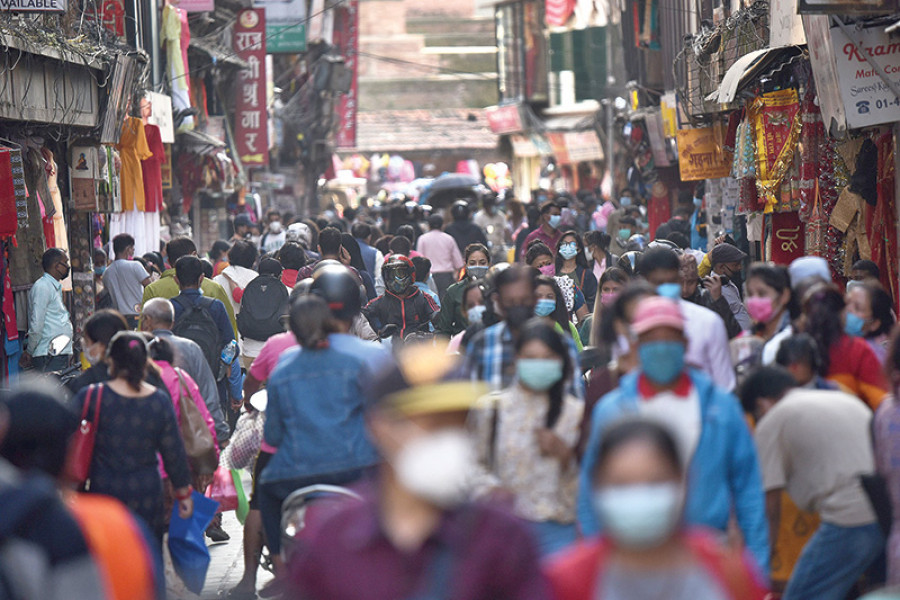Health
Covid-19 risks have not lessened but public perception of risks has, health experts say
As everything has opened up, doctors say importance of mask mandate and other awareness campaigns has increased.
Arjun Poudel
In the first week of August, the Ministry of Health and Population had launched the Nepal Mask Campaign with the slogan,“I will wear a mask and encourage others to wear one too.”
Six weeks after the launch, authorities are unsure if the campaign is ongoing. Nor do they know if the message is still not lost on people.
What happened in the last six weeks is that the Health Ministry transferred Dr Radhika Thapaliya, then director at the National Health Education Information and Communication Centre. Almost everything—from schools to gymnasiums—has reopened. People stopped following public health measures including complying with wearing face masks, maintaining physical distance and washing hands.
“I don’t know if the mask campaign we launched achieved its goals or not but the campaign and the message is still relevant,” said Thapaliya, a risk communication expert serving under the Health Ministry. “The campaign should be continued until the Covid-19 pandemic remains.”
Despite warnings from public health experts and officials from the Health Ministry, authorities allowed everything to reopen. And what is concerning is people are behaving as if the risk is over or there was no pandemic.
“What we see nowadays is complacency growing in all sectors,” said Thapaliya. “When the risk grows or cases grow, people become cautious and when the cases decline people behave normally. It is human nature but the change in public perception towards the infection is fraught with risks.”
Public health experts say that changing people’s behaviour is a challenging task, which costs time and effort. Proper risk communication is essential to promote safe behaviours. Right information at the right time and right channel is important for the success of the campaign. And for that two-way communication is important.
“Authorities should continue the campaign,” Dr Baburam Marasini, former director at the Epidemiology and Disease Control Division, told the Post. “When we stop giving messages, people stop following the instructions.”
In the initial stage of the pandemic, people even misbehaved with health workers including doctors and some landlords refused to rent out rooms to health workers. But now they are behaving as if there is no risk.
“Authorities failed to grasp people’s perception of risks and there was no proper risk communication,” said Marasini. “Even if the number of new cases has been declining, the risk of infections has not lessened and it’s not yet time to let the guard down.”
The importance of mask mandate and other awareness campaigns has increased, as everything has opened up, doctors say. They said that saying that risk of infection has not lessened does not mean terrorising the people and that people should stay at home indefinitely.
“What we are saying is ‘please do not let your guard down against Covid-19,’” Dr Bikesh Tamrakar, an assistant professor at Kathmandu University, told the Post. “We should be back to our normal life by taking precautions.”
On Tuesday, 1,036 people tested positive in 9,626 polymerase chain reaction tests and 294 others tested positive in 3,996 antigen tests. The positivity rate of the polymerase chain reaction tests is around 11 percent.
Even if one is fully vaccinated or infected with the coronavirus, they must follow safety measures. Studies have proved that people can get reinfected and the vaccinated population can also get infected and pass the infection to others even if those vaccinated are not affected much.
“We should think of the health of our elderly parents and other family members, whose health conditions are fragile,” added Tamrakar.
So far, 6,230,823 people (over 20.7 percent) have taken the first dose of Covid-19 vaccines and 5,628,792 (over 18.7percent) have been fully vaccinated.




 11.84°C Kathmandu
11.84°C Kathmandu















